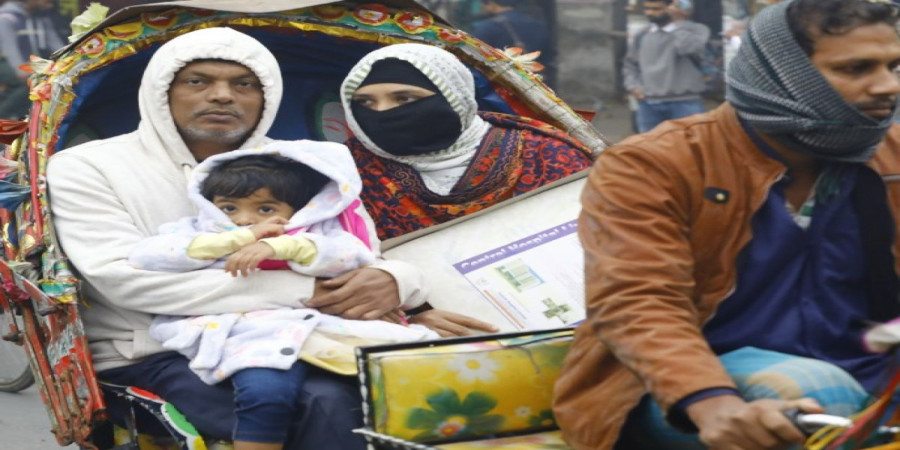
ছবি: Photo: Collected
The biting cold has taken hold across Bangladesh, with a significant drop in temperatures and dense fog enveloping the country. This sudden plunge in weather conditions, particularly in the northern regions, has disrupted daily life and left laborers and low-income groups struggling to cope. Children and the elderly are increasingly suffering from cold-related illnesses, adding pressure to healthcare facilities.
Thursday saw the capital, Dhaka, chilled to 13°C, with no sunshine throughout the day. A thick blanket of fog and cold winds amplified the sense of chill, leaving people shivering. By evening, the cold became bone-chilling, making life difficult, especially for those forced to work outside. Despite the harsh conditions, many ventured out for their daily needs, but street vendors and laborers bore the brunt of the weather.
The Meteorological Department predicts further deterioration in the coming days. Experts forecast a moderate cold wave between January 7 and 9, with another spell likely around January 10. However, extreme conditions, including a severe cold wave, could potentially occur between mid to late January if temperatures dip below 4°C.
The northwestern district of Chuadanga recorded the lowest temperature in the country on Thursday at 9.8°C. Local reports indicate a sharp increase in cold-related hardships since the New Year began. Laborers and daily wage earners, particularly in rural areas, are finding it hard to sustain their daily activities in these adverse conditions.
In Rangpur, dense fog and biting winds have brought life to a standstill. For the past two days, the sun has been absent, compounding the misery for low-income and homeless individuals. Hospitals in the area report a surge in cold-related illnesses, while impoverished families struggle due to insufficient warm clothing. Similar conditions prevail in other districts like Kurigram, where heavy fog and icy winds dominate, leaving villagers with no respite from the chill.
The southwestern district of Barishal has experienced cloudy skies and fog for two consecutive days, resulting in dampened business activities. The situation is particularly severe in the mornings and evenings when temperatures plunge, causing further discomfort to the population. Observers note that footpaths and roadside stalls selling winter clothing have seen increased traffic as people scramble to purchase affordable warm garments.
The adverse weather is also affecting agriculture. In Rangpur and other regions, concerns are mounting over the health of crops like boro seedlings and potatoes, which are sensitive to prolonged cold and foggy conditions. Farmers are worried that the persistent chill and lack of sunlight may hinder growth and cause significant losses.
In Sirajganj, the dense fog has severely impacted visibility, leading to transportation challenges and delays. The chill is particularly biting in rural areas, where makeshift bonfires are a common sight as people try to combat the freezing temperatures. Government relief efforts, including the distribution of blankets and winter aid, are underway but fall short of meeting the needs of the affected population.
Meanwhile, in Madaripur, a dense fog caused a passenger bus to skid off the Padma Bridge Expressway into a ditch. The incident occurred around 8:30 AM on Thursday and left at least 10 passengers injured. They were rushed to local hospitals for treatment. Fortunately, no fatalities were reported, but the incident highlights the dangers of reduced visibility on highways during severe winter conditions.
As the country braces for a potential intensification of cold spells, the Meteorological Department emphasizes the importance of preparing for harsher conditions. Vulnerable populations, particularly those in remote and underprivileged areas, face a tough battle to stay warm and healthy. Without coordinated efforts from both governmental and non-governmental organizations, the suffering of the people is likely to worsen in the coming weeks.
repoter






